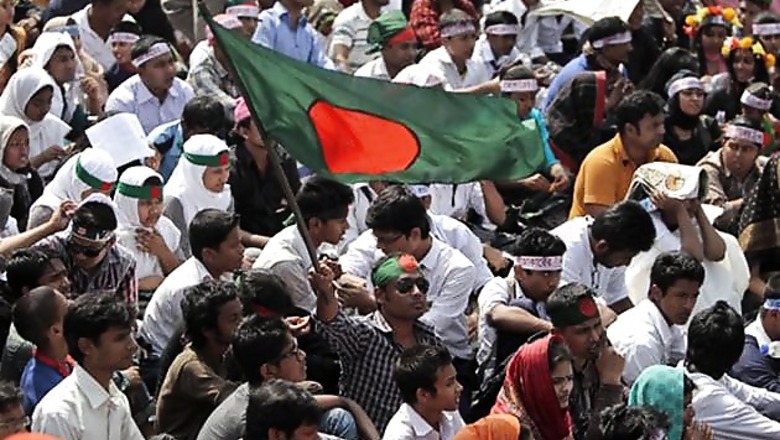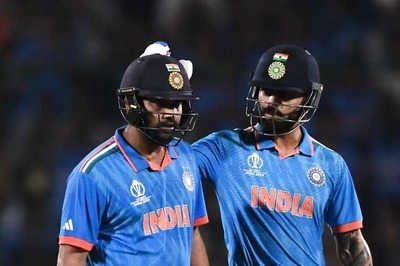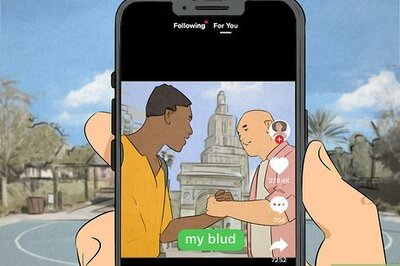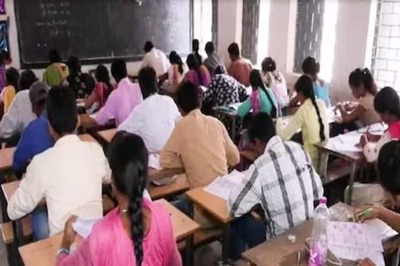
views
Hundreds of thousands of Bangladeshis have been thronging Shahbagh, a Dhaka landmark, demanding death sentence for 1971 War criminal Abdul Quader Mollah of the Jamaat-e-Islami. Following the murder of blogger Rajib who spearheaded the agitation, the gathering has grown manifold and the sentiments have been further galvanised. CNN-IBN's senior editor Suhasini Haidar joined IBNLive readers for an interaction on the massive agitations in Dhaka over the 1971 War Crimes trials.
Q. Is the Bengali nationalism getting upper hand in the country over radical Islam by these form of protests or is it just anger against pro-Pakistani people who worked against the freedom struggle? Asked by: Sathyaki
A. Hello everyone...and thanks for the questions! What's happening in Bangladesh could be a game-changer...hope to chat about what I have seen in Dhaka, and would love to hear your thoughts. Sathyaki, thats a good question...I spoke to many protestors who said this was about reviving the idealogy of 1971, so yes it is about Bengali nationalism, as it is their demand for the death penalty for people convicted of war crimes.
Q. Is the death of blogger an attempt to check social media freedom or is it another hate crime carried out by impulse? Asked by: Ravi
A. Hard to say Ravi, the police did make some arrests and reportedly shut down a blog run by Jamaat student activists- so they do believe the killing was motivated by them. Let's remember the Shahbag movement was started by bloggers of the Bloggers and Activists Online Network for National interest, but they have been taking on extremist groups for some years now.
Q. You were there at both Tahrir square and at Shahbagh but there is lot more difference between two places as at Shahbagh it is like a festival mood with people playing music and dancing etc. Asked by: Manush
A. Hey Manush...I think there are many differences-- to begin with this movement is actually looking to "push religion out of politics", while Arab spring movements have mostly been against autocratic rulers, and have often been driven by religious-political groups like the Muslim brotherhood. Secondly, in this case the government of Sheikh Hasina is quite obviously giving the movement space, and even support of Awami League's youth wing the BCL leaders. (NB-- I wasnt at Tahrir square!)
Q. Do such type of protest like in developing countries like Libya, Bangladesh and India signify that there is lack of faith in judiciary, democracy and people like an major revolution and change? Asked by: Hitesh
A. I think there's more to it, Hitesh. I think a new generation is beginning to feel the power of their voice. I think it's more about hope for change than a loss of faith, although they are all quite cynical about government. It's also a demand for new voices to lead them.
Q. Dear Suhasini, convey my heartfelt regards and thanks to Bangladeshi people. Our family neighbors who left bangladesh and lost their family members are grateful to them. Let them know we love them and support them for their journey towards a secular and better society. Jay bangla. Asked by: Bhaswati
A. :)I think that journey is a long way still, Bhaswati, but yes that seemed to be the demand of many young activists I met.
Q. Imagine if Bangladesh govt impose a ban on Jamaat is it possible for govt to implement that ban very successfully Asked by: Naz
A. I think it would be very difficult, Naz. Jamaat is very well organised and has a lot of support still. Not sure banning is the answer, even if that is the demand. Eventually, issues of ideology have to be fought, democratically.
Q. Can the execution of Mollah undo the damage of freedom struggle and restore the life of people or it will give an false sense of closure to the crimes committed at that time. Asked by: Ravi
A. It's a fair point Ravi, but that is the theory that reconciliation commissions and war crimes tribunals are based on. I can tell you, I was taken aback with how strongly the new generation, who were born 20 years after the liberation struggle feels about atrocities committed then. Everyone had a personal story to tell.
Q. All along we read that influence of radical Islam is increasing in Bangladesh. How did thing suddenly turn around. Is through any specific organisation behind this or is it spontaneous? Asked by: Sandeep
A. Interesting question Sandeep. I think much of the push to radicalism came from fear of extremist groups coupled with their political clout and the army's tight control. In the past decade we have seen all 3 of those factors on the decline. Many have told me what they are opposing is not just the Jamaat's politics, but rejecting the violence of the past few decades.
Q. Is this public outcry in B'desh against religious fundamentalism sign of the people getting tired of years and years of supression on the name of the religion by the clergies? Asked by: Vipul
A. Yes Vipul, I do think so. Big demand on the streets for the government to move back to a secular government, to go back to Sunday holidays, etc. Pl see my answer to Sandeep as well.
Q. Is it fair on the part of Bangladeshis to revive an horror story of nearly four decades back as there are present day problems like unemployment and poverty etc? Asked by: Manav
A. You have a point Manav. But prosperity without a sense of justice may not work for them either.
Q. Will this lead to further polarization between the religious and the secularists? Asked by: MS
A. Yes, and fear of violence too...MS. But it's an important story, and one we mustn't lose sight of.
Q. Do such type of protest mean that street justice will become the norm in coming times and their will be further such types of protest as Judiciary has its own reasons for giving lighter sentences? Asked by: Ravi
A. I think what it means is that people have a greater interest in the outcomes...hopefully that means more accountability, but doesn't translate to vigilantism.
Q. What is the UN take on the protest? Asked by: Rajiv
A. The UN has certainly taken a strong stand on the war crimes committed in 1971- millions were affected- lakhs killed, women raped, and the UN also backed the Intl war crimes tribunal. But I don't think there's any take on the protests-- although many human rights organisations have opposed the demand for the death penalty, etc.
Q. What in your opinion is the answer to this injustice Suhasini? If the organization is banned, a new group like this born. Violence will only lead to trouble. How do nations get rid of these sick murderers? Asked by: Shayne
A. I wish I did have an answer...but yes, violence can only go on when these groups have no support on the ground-- implicit or tacit out of fear. It is important also to take away any religious sanction for political activities, and that needs a more secular approach to separate the two.
Q. What is the general perception of India per se? Do they feel let down by the lack of our cooperation in some ways? Asked by: Vipul
A. I'm glad you asked that, Vipul. I've covered Bangladesh over a period of 2 decades-- and I have visited at times when anti-India sentiment was at a high. That atmosphere has changed perceptibly- many speaking v positively of India, despite the obvious disappointment over unresolved issues. Speaking to CNN-IBN, foreign minister Dr Dipu Moni said, both the protests and the improving relations with India were symptoms of reverting to the "spirit of 1971". Would be interesting to see if it lasts, especially if this outlives the next elections due in December.
Q. Do you feel that movement is likely to come to an end in few days or people are determined to carry it forward till their demand of capital punishment is met? Asked by: Sanjay
A. Not sure Sanjay-- important to remember that the movement has been carried out virtually for years...so may go back to that. On the other hand, they have already got the govt to change the law, and may effect other changes, which may strengthen their forces. Like many such movements though, the Shahbagh movement remains leaderless and by and large unorganised..so lets wait and watch.
Q. India has seen executions of its two terrorist in recent times with Veerappan aides also in line for that, do you feel that rich and influential criminals like politicians get of lightly with few days in jail at best? Asked by: Sanjay
A. :) we'll discuss that on another chat, Sanjay! Thanks for joining everyone. Hope you can catch a special report on WorldView on Bangladesh this week at 10pm on Friday. Tc!




















Comments
0 comment